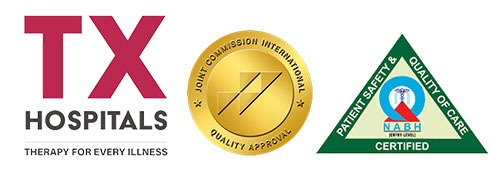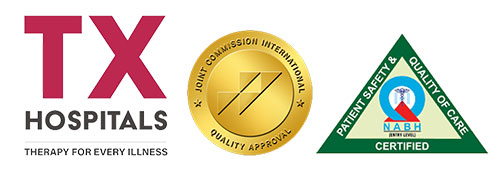TURP Surgery in Hyderabad


What is TURP Surgery?
Transurethral resection of the prostate (TURP) is a surgical procedure performed to treat an enlarged prostate, a condition known as benign prostatic hyperplasia (BPH). During the procedure, a specialized instrument called a resectoscope is inserted through the urethra to remove excess prostate tissue that is obstructing the flow of urine. TURP surgery is one of the most common and effective treatments for BPH.
Why is TURP Surgery Performed?
TURP surgery is performed for several reasons, including:
- Alleviating urinary symptoms: An enlarged prostate can cause urinary problems such as frequent urination, weak urine flow, difficulty starting and stopping urination, and the sensation of incomplete emptying of the bladder. TURP surgery aims to alleviate these symptoms and improve urinary function.
- Treating urinary retention: In some cases, an enlarged prostate can lead to urinary retention, where the bladder is unable to fully empty. TURP surgery can relieve urinary retention and restore normal bladder function.
How to Prepare for TURP Surgery?
Preparing for TURP surgery involves a series of steps to ensure a safe and successful procedure. Here are some important aspects of the preparation process:
- Consultation and evaluation: You will have a consultation with a urologist at TX Hospitals who specializes in TURP surgery. They will evaluate your condition, discuss your symptoms and medical history, and explain the surgery in detail.
- Medical evaluation: Your healthcare team will conduct a thorough medical evaluation to assess your overall health and identify any pre-existing conditions that may impact the surgery. This evaluation may include blood tests, imaging scans, and consultations with other specialists if necessary.
- Pre-operative instructions: You will receive specific instructions on how to prepare for the surgery, including fasting guidelines and any necessary medication adjustments. It is important to follow these instructions carefully to ensure a smooth procedure.
More About TURP Surgery at TX Hospitals
At TX Hospitals, we take pride in our team of highly skilled urologists who specialize in TURP surgery. Our doctors have extensive experience in performing TURP procedures and are supported by a dedicated team of healthcare professionals. We prioritize patient safety and comfort, utilizing advanced medical technologies and adhering to the highest standards of care.
Consequences of Delaying TURP Surgery
Delaying TURP surgery can have several consequences, including:
- Worsening of urinary symptoms: An enlarged prostate can lead to worsening urinary symptoms over time. Delaying TURP surgery prolongs the duration of these symptoms, causing discomfort and affecting your quality of life.
- Urinary complications: Without timely treatment, an enlarged prostate can lead to complications such as urinary tract infections, bladder stones, and damage to the kidneys. TURP surgery helps prevent or manage these complications by improving urine flow and reducing obstruction.
- Decreased quality of life: Untreated BPH can significantly impact your quality of life, affecting your ability to sleep, work, and engage in daily activities. TURP surgery aims to improve urinary function and restore your quality of life.
Don’t delay your treatment any further. Contact us at TX Hospitals to schedule a consultation with our esteemed urologists specializing in TURP surgery. We are committed to providing you with the highest quality care and guiding you towards optimal urological health.
Frequently Asked Questions (FAQs)
The duration of TURP surgery can vary depending on the size of the prostate and the complexity of the case. On average, the procedure takes approximately one to two hours.
TURP surgery provides several benefits for individuals with an enlarged prostate, including improved urinary symptoms such as increased urine flow, reduced frequency of urination, decreased urgency, and a sense of complete bladder emptying. It can significantly enhance the quality of life for those suffering from BPH.
TURP surgery is performed under anesthesia, so you will not experience pain during the procedure. After the surgery, some patients may experience mild discomfort or pain, which can be managed with pain medications prescribed by your doctor.
The recovery period after TURP surgery can vary from person to person. Generally, patients are required to stay in the hospital for a day or two after the surgery. It may take several weeks to fully recover, during which time you may experience some urinary symptoms, such as frequency and urgency. Your doctor will provide specific instructions on post-operative care and activities to aid in a smooth recovery.
As with any surgical procedure, TURP surgery carries some risks. Potential complications may include bleeding, infection, urinary incontinence, erectile dysfunction, and retrograde ejaculation (ejaculation into the bladder instead of out through the penis). However, these complications are relatively rare, and your urologist will take appropriate measures to minimize any potential risks.
TURP surgery is a suitable treatment option for many patients with BPH. However, it may not be recommended for individuals with certain medical conditions or those who have previously undergone certain types of prostate surgery. Your urologist will evaluate your specific case and determine if TURP surgery is the right option for you.
Yes, there are alternative treatments available for an enlarged prostate, depending on the severity of your symptoms and the size of your prostate. These may include medication therapy, minimally invasive procedures such as laser therapy or microwave therapy, or other surgical techniques. Your urologist will discuss the best treatment options for your individual case.
TURP surgery can have some impact on sexual function. Retrograde ejaculation, where semen enters the bladder instead of being expelled through the penis, is a common occurrence after TURP surgery. However, erectile dysfunction is rare. It’s important to discuss any concerns about sexual function with your urologist before the procedure.
Your urologist will provide you with specific instructions on how to prepare for TURP surgery. This may include fasting before the procedure, adjusting medication schedules, and undergoing pre-operative tests or evaluations. It’s important to follow these instructions carefully to ensure a successful surgery and smooth recovery.







